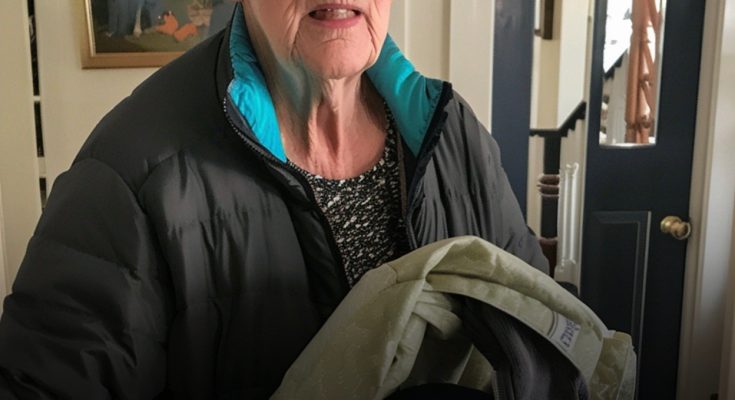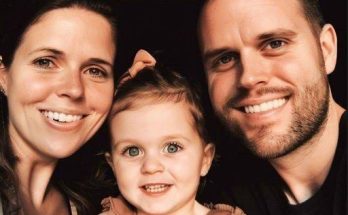
When Agnes’ mother-in-law, Carol, suggested donating her outdated clothes to charity, it appeared to be an ideal way to reduce clutter. However, when Agnes’ prized silk blouse went missing and an urgent call forced her husband to rush to Carol’s aid, they discovered a truth that left them both stunned.
Let’s dive into the often interesting world of in-laws. Those bonus family members can sometimes bring unexpected twists. What happens when such a twist makes you question everything about them? Brace yourselves because that’s what happened between me and my mother-in-law, Carol…
On the surface, Carol was the epitome of kindness. Ever dressed impeccably, she sported a constant smile and was always ready to help out.
Honestly, she could whip up an amazing casserole and charm a grumpy neighbor all in one afternoon. Marrying her son David, five years ago, I felt I had truly lucked out.
Fast forward to a few months ago, our recent move to a new house turned everything upside down.
Unpacking unearthed clothes unseen for years, dredging up memories of past fashion faux pas. I found myself with boxes full of clothes I no longer wore.
One afternoon, Carol mentioned that she volunteered at a charity collecting clothes for those in need. Perfect timing! I could declutter and contribute to a good cause simultaneously.
I gladly agreed, “Absolutely, Carol, take whatever might be useful.”
Weeks passed in a flurry of packing and settling. Carol would drop by, cheerful as always, taking away bag after bag of my old clothes.
She’d praise me, “You’re an angel, Agnes. These will help so many.”
The thought of my clothes benefitting others gave me a warm feeling.
Seasons changed and Carol’s visits became frequent. However, something seemed off. She started taking a particular interest in specific items, like my silk blouse worn once to a work dinner or a summer dress with tags still on. These vanished from my closet without a trace.
While I’m not overly attached to my clothes, it felt odd. One evening, while David was absorbed in his laptop game, I brought it up.
“David,” I began, “Have you noticed some of my clothes are missing lately?”
Barely looking up, he responded, “You mean the donations?”
“Yes,” I hesitated, “Some haven’t even been worn. The silk blouse from Sarah’s party? That dress with the tags? They shouldn’t be in the donation pile.”
David shrugged, “Mom probably thought they were in good condition for charity. Don’t stress it.”
Don’t stress it? Easy for him to say.
It became less about the clothes and more about the growing suspicion. Was Carol genuinely donating them, or was something else at play?
One Saturday afternoon, our routine was interrupted by a ringing phone. David answered, his face turning pale.
The brief, tense conversation ended with him visibly shaken.
“What’s wrong?” I asked, anxiety creeping in.
David glanced at me, eyes wide with fear. “It’s Mom. She needs me now.”
The urgency sent chills down my spine.
He grabbed his keys and dashed out, leaving me worried and full of questions. What was Carol up to, and why was David needed immediately?
When David returned later, the look on his face was unlike anything I’d seen. He appeared drained and unsteady as he sank onto the couch.
“What’s going on?” I asked, heart pounding.
“Mom wasn’t donating your clothes to charity,” he revealed.
A chill ran through me. “What?”
Taking a deep breath, he continued, “She was helping Mrs. Henderson—a neighbor who was evicted by her kids and had nowhere to go.”
I recalled Mrs. Henderson, always kind and offering cookies when we passed by. The idea of her being kicked out by her own family filled me with anger.
“Why didn’t Carol tell us?” I whispered.
David, frustrated, explained, “Mom didn’t want to burden us. Mrs. Henderson didn’t have any clothes, so Mom gave her yours.”
The thought of Mrs. Henderson in my old sweaters moved me to tears.
“Why were her kids so cruel?” I asked, grappling with the harsh reality. “How could they do that?”
David’s expression darkened. “They wanted her money. When she refused, they threw her out. Legally, there’s no way to force them to take her back.”
I was furious. How could anyone treat their mother this way? But another thought struck me.
“Why the urgent call today?” Carol’s distress echoed in my mind.
“Mrs. Henderson fell. Mom couldn’t lift her and panicked, calling me for help.”
Relief flooded me knowing Mrs. Henderson wasn’t seriously harmed. My heart ached for her.
“We need to help her,” I decided. “She shouldn’t face this alone.”
David agreed, a spark of hope in his eyes. “I know,” he affirmed, holding my hand.
The next day, we visited Carol. This was now about supporting those in need, regardless of blood relation.
Carol greeted us, worry dimming her smile. Beside her stood Mrs. Henderson, grateful yet embarrassed.
“Agnes, David,” Carol began, apologetically. “I didn’t want to trouble you.”
Stopping her, I hugged her tightly, tears flowing, “You should have told us. We’re family. We help each other.”
Carol, holding back tears, hugged me back. Over her shoulder, Mrs. Henderson’s surprise was evident.
“Thank you,” Carol whispered. “I didn’t want to burden you.”
Pulling away, I reassured her, “It wasn’t a burden. It was the right thing to do.”
Turning to Mrs. Henderson, I smiled warmly, “It’s good to see you again.”
Her hesitant smile and heartfelt thanks moved me deeply.
“So what now?” David asked Carol.
Carol sighed, outlining the need to get Mrs. Henderson physically stable and explore her legal options.
We spent hours planning. David contacted social services and legal aid. I focused on Mrs. Henderson’s comfort, donating real items this time—like pajamas and comfy sweaters.
In the following days, keeping busy with support arrangements, our house transformed from quiet to a hub of assistance.
Months later, the legal battle dragged on, but progress was made. Mrs. Henderson regained control of some finances, though reconciliation with her children seemed impossible.
Carol, meanwhile, evolved. The ordeal revealed her hidden compassion and fierce protectiveness.
Our experience reaffirmed the importance of family—both by blood and by choice. Through helping someone in dire need, we realized the true power of community and kindness.
Share



